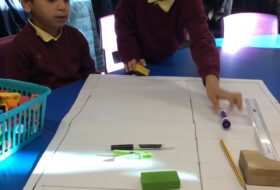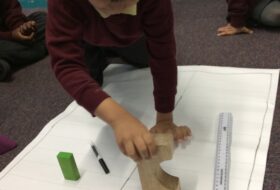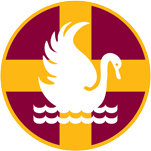CURRICULUM
Maths
Maths is everywhere!
Curriculum
We are committed to providing a maths curriculum which is tailored to meet the needs of our children. As with every other subject, oracy is one of our drivers and teachers employ a range of strategies to support language development. Oracy is a key learning tool in maths and the teaching of mathematical vocabulary and stem sentences is a driver for pupil understanding, developing the confidence of pupils to explain mathematically. A further emphasis is placed on practical, visual, multi-sensory and collaborative learning to ensure that all children can take part.
Reception
Reception follows the Early Years Statutory Framework for the Early Years Foundation Stage. Delivery is further supported by the Birth to 5 Matters guidance.
KS1 and KS2
Our maths curriculum is based on the DfE’s ‘Mathematics Guidance for KS1 and KS2’. This lays out a set of ‘Ready-to-Progress’ criteria for each year group. To complement this with wider coverage of the National Curriculum for maths, Key Stages 1 and 2 are using the NCETM’s Curriculum Prioritisation planning guidance.
The full government guidance can be viewed here: Mathematics Guidance
The following PDFs detail the ‘Ready-to-Progress ‘ criteria and the curriculum coverage for each year group.
KS1 and KS2 each have daily 10-minute basic skills sessions. These are oral, mental and practical and aim to support recall and reinforce learning. The focus of these basic skills sessions are key number facts. Reception and KS1 follow the NCETM’s Mastering Number programme with a focus on number, addition and subtraction facts. KS2 focus on multiplication and division facts. Each year group has termly key number fact targets which children work towards.
Basic Skills Subject Plan 24-25
Assessment
Children are informally assessed on an ongoing basis. This assessment includes the use of the suggested assessment questions from the DfE’s ‘Ready to Progress’ materials. Teachers then adapt their teaching as necessary.
Enrichment
We strive to raise the profile of mathematics across all subjects and in the wider life of the school. We wish to encourage positive attitudes towards mathematics for all in our school community, making connections to real life contexts and celebrating our enjoyment of mathematics. The idea that ‘Maths is Everywhere’ forms the basis of our enrichment activities.
Our aims aligned with those of the Liverpool Counts Quality Mark and it was our commitment to those aims which helped us to proudly achieve the Silver Quality Mark in December 2021.
How did I use maths this weekend?
Each Monday morning, staff talk to children about how they have used maths at home during the weekend. Pupil voice surveys have shown that this significantly improves children’s awareness of how maths is all around us.
Year 5
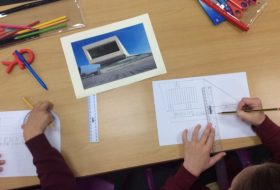
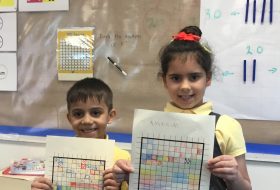
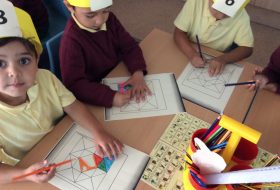
Year 1
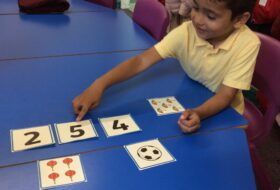
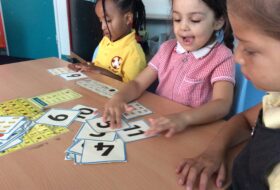
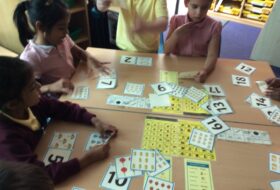
We learned about doubling numbers.
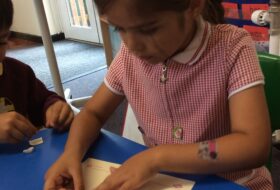
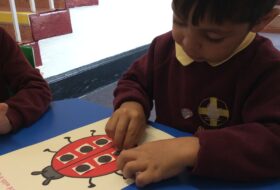
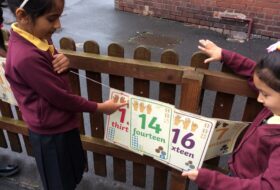
We looked for numbers around school on a number hunt. Numbers are everywhere!
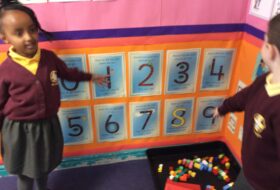
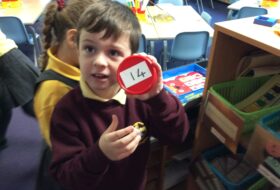
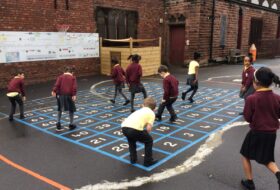
We practised our counting skills to give teddy the right amount of cakes.
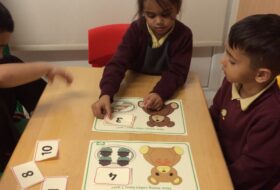
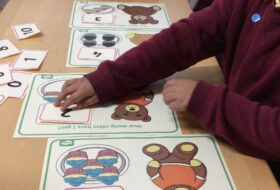
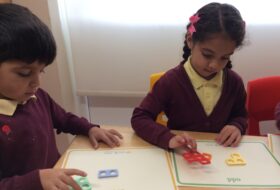
We learned about odds and evens using Numicon.
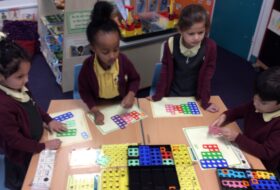
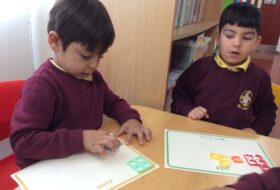
We compared objects using measurement. We learned to use the language of measurement such as heavy and light.
